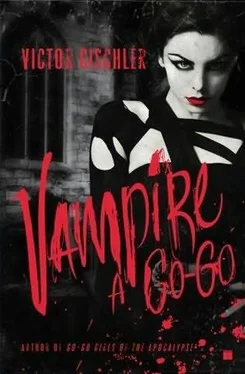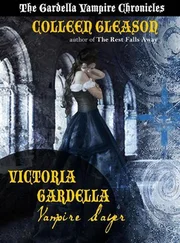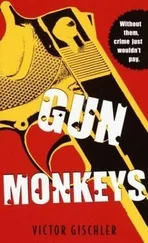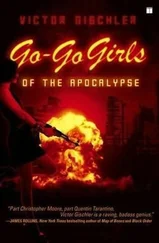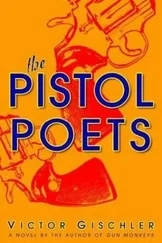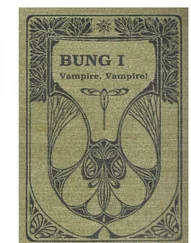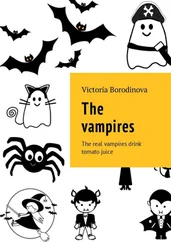Kelley pictured it, his gut lurching at the thought.
“We can leave them for tonight. Get some sleep, and we’ll figure it out in the morning.”
Kelley nodded, looked one more time at the back of her head, all that red hair.
He was glad he couldn’t see her face.
Kelley returned to his room in the White Tower, and lay down, exhausted, in bed. Sleep would not come. Part of him was appalled at the crimes against nature he’d witnessed in the past few weeks, and another part of him was ashamed by the fact that these scenes were a little less appalling to him each passing day. He even found himself occasionally sharing Roderick’s scientific enthusiasm, wondering how a particular experiment would turn out. Could a man get used to such things? He hated the thought of it. Seeing Bianca’s dead face had shaken him, had yanked him back to the reality of what they were doing.
He tossed and turned, tangled the blankets, every muscle in his body aching for the sleep that wouldn’t come.
He lay a long time, then he heard the door to his chamber open on rusty hinges. Kelley turned his head, saw the darkened figure enter.
“Who is it?”
No answer. Kelley held his breath.
The figure approached, and the bed sagged as it climbed on. Kelley’s pulse clicked up a notch.
The figure crawled on top of him and Kelley trembled. He opened his mouth to scream but couldn’t find the breath for it. The figure leaned forward, her face coming into the moonlight, her nose an inch from Kelley’s. Bianca was ghost pale, her lips black, eyes red, teeth sharp and yellow.
“Take me, Edward, my love. Put yourself inside me.”
And then Kelley did scream.
He thrashed, bucked the zombie off of him, kicked her away, rolled off the bed and hit the floor hard, tangling himself further into the bedclothes. He…
… opened his eyes.
He stood, panting, his heart racing. The yellow rays of dawn crept over the trees beyond his window. He looked around the room frantically, little panicked noises leaking out of him. A dream. Bianca. Just a dream.
He knelt to retrieve his journal from its hiding place beneath the chest. He took it to his desk and dipped his quill in ink, but he couldn’t write. His hands shook. He filled a cup with cheap, dark wine, spilling some. He drank, letting it burn down to his belly, then took up the quill again.
I can no longer be part of this abomination. Edgar must be contacted. It’s time. The Stone must be destroyed or hidden. It stops now.
Kelley poured another cup of wine. He drank and wept.
“It has to be now,” Kelley said heatedly. “I’m cracking up.”
Edgar shushed him. “Keep your voice down.”
They knelt next to each other on the cold stone floor of St. Vitus Cathedral, hands clasped in prayer. Edgar had snuck in dressed as one of the workers, although there were fewer workers now. In the castle, there was a strange tension, a growing, unspoken sense that something portentous was coming to fruition. There had been fewer and fewer casual visitors to court, little sign of foreign dignitaries and the normal activity of state, almost as if Prague Castle had been quarantined. As if the city held its breath, waiting for something dire and long-anticipated to finally drop its turd of doom right into the soup.
“We’re not ready,” Edgar whispered. “We’re still gathering strength.”
“I’m not doing this anymore.” Kelley said it with authority. He was putting his foot down. “Do it now, or I quit.”
“Are you forgetting?” Edgar asked. “You’ve sworn allegiance to the Society.”
Did the brand on Kelley’s ass flare slightly, or was it his imagination?
“I might not be able to escape, but I’ll kill myself. I’ll drink poison or throw myself off the top of the White Tower. Then you can find yourself another dupe.”
“Pull yourself together, Kelley. My God, you’re a wreck. I can smell the wine on your breath. It’s seven in the morning.” He eyed Kelley, a hard appraisal. “You’d do it, wouldn’t you? You’d kill yourself.”
Probably not. Kelley was too much a coward. “I can’t stand the constant horror anymore.” This, at least, was the honest truth.
Edgar sighed. “Two days. Give us two more days.”
Kelley closed his eyes tight and bowed his head. He couldn’t remember how a prayer went, couldn’t think of anything that didn’t sound like whining, couldn’t think of anything to ask that he deserved. To Edgar he said, “Two days. No more.”
“We’ll need your help from the inside.”
“Just tell me what you want.”
Roderick had set up a small antechamber near the entrance to the dungeon as a personal study. That’s where Kelley found the astrologer, hunched over a table littered with documents and diagrams, small models of the machines and gadgets he’d designed in service of the emperor’s mad project.
Roderick muttered to himself. There were bags under his eyes. Kelley thought the man had been looking more fatigued these past few days. They’d all been pushing themselves, but until now, the old man had seemed inexhaustible, buoyed and driven by his singular purpose.
Kelley cleared his throat, not sure if he should enter.
Roderick looked up from some obscure parchment, allowing a moment for his eyes to focus. “Oh, it’s you, Kelley. Come in if you like. Have a seat.”
Kelley lowered himself into the rickety wooden chair opposite Roderick. He noticed the cup of wine at the astrologer’s elbow and could not remember ever seeing the man drink before.
“I’m at an impasse,” Roderick said. His voice sounded so tired that Kelley wondered if he might be ill.
Kelley leaned forward, elbows on the table, hands folded.
“Oh?”
“We can make a corpse almost alive,” Roderick said. “Almost alive. What the hell good is that? It is merely walking death. But we’re so close, Kelley. I know it.”
“I thought it was just a matter of finding the right combination of lenses,” Kelley said.
Roderick frowned. “I suppose. I mean, that’s part of it, certainly.” He shook his head and tsk ed. “I may not have been entirely honest with the emperor. Yes, the lenses. Of course. But so much more. We could experiment for a hundred years, fill the dungeon with zombies and still not stumble upon the exact answer.”
He reached below the table, came up with a jug, filled his cup with more wine. He held the jug out to Kelley. “Can I offer you a drink?”
Kelley grinned. “I never touch the stuff.”
Roderick sputtered laughter. “Good one.” He filled another cup, passed it to Kelley. “The duration we expose our subjects to the stone is likely one of the problems. It’s possible we simply haven’t allowed the process to complete.”
Kelley sipped wine. “Then you’re going to have to find somebody bigger and stronger than me to turn that damn crank. I’m wearing myself out. My heart might explode.”
“Fret not. We’re already in the process of constructing a much more elaborate version of the device we’ve been using. You won’t kill yourself cranking.”
Kelley recalled the dammed river and the waterwheel in the caverns beneath St. Vitus Cathedral. He almost commented but remembered he wasn’t supposed to know about that. Instead he said, “Is it really corpses you want to bring to life anyway? I thought the emperor’s goal was immortality.”
“A fair point.” Roderick sipped wine, smacked his lips. “There are two ways to go about this. The emperor and I spoke at length about it in the early days of the project. The first option.” Roderick held up a finger. “We fashion a device that confers immortality upon the subject. But how would we know if it worked or not? Expose a living man to immortality rays, and what’s the difference? Alive is alive.”
Читать дальше
